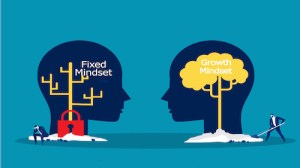As a teenager, Mark Zuckerberg started Facebook in his dorm room. At just 12 years old, Mark Cuban kickstarted his entrepreneurial career by selling bin bags door to door. The business world is packed with legendary origin stories like these.
These stories often begin with the protagonist having nothing – Walt Disney was fired from his job at a newspaper because he ‘lacked creativity’ – before winding up on top of the world.
From where we grab our Pumpkin Spice Latte to what film we stream on Saturday night, our day-to-day lives are shaped by single-minded individuals who started with a dream and ended up changing everything. They’re shaped by the entrepreneurial mindset.
What defines the entrepreneurial mindset?
Oxford Languages defines an entrepreneur as “a person who sets up a business or businesses, taking on financial risks in the hope of profit.” That may provide a starting point, as fearlessness is certainly part of being an entrepreneur, but it’s not totally accurate. John Paul De Joria and Colonel Harland Sanders were both sleeping in their cars when they founded Paul Mitchell and Kentucky Fried Chicken respectively, so the financial risks were minimal.
Instead, perhaps it’s best to look at the qualities that drive successful entrepreneurs and then see how businesses can help nurture them.
Creativity is a valuable asset
Some entrepreneurs fine-tune existing products, business models, or services to provide a better or more affordable alternative to the marketplace. For instance, Ray Kroc. Others create revolutionary new ways of doing business – think Reed Hastings – but creativity drives both methodologies.
The ability to think outside the box and generate innovative ideas is at the heart of entrepreneurship. Creativity is becoming increasingly valuable in a world that’s being constantly reimagined by disruptors.
Passion fuels success
Steve Jobs once said, “People with passion can change the world.” It’s very difficult, if not impossible, for entrepreneurs to thrive without passion. Success requires more than creativity. It requires hard work and the ability to overcome obstacles.
Sir James Dyson developed thousands of failed prototypes before he landed on the one that would make him synonymous with UK vacuum cleaners, and it’s hard to believe he could have reached that eureka moment without passion.
Flexibility breeds innovation
Vera Wang pivoted to become a world-famous fashion designer when her figure skating career spun out. The mysterious founder of BitCoin went from relying on banks to competing with them after the financial crisis of 2008. Evan Williams co-founded Twitter after his podcast network failed.
Those with the entrepreneurial mindset aren’t limited to a single idea; they can flex, adapt and keep driving towards a better one.
Ambition is a must
The one quality that every entrepreneur must have is ambition. No great idea comes without its share of roadblocks and setbacks, and some entrepreneurs may even run into naysayers who think they’re too ambitious.
Just ask Richard Branson, who’s overseen 500 companies, or Jeff Bezos, who thought that a website that sells everything, offers next-day delivery, and makes its own movies sounded perfectly doable.
Three ways to create an entrepreneurial spirit
We’re now living in a new business landscape of intense collaboration, super-connected functions, and hyper-agile workforces. Smashing silos is a priority, AI can be leveraged to make better decisions, and ‘swarm intelligence’ has been shown to be effective for both company management and product development. So, is the entrepreneur still important?
The short answer is, yes. We need visionaries more than ever. But how can businesses manage to nurture the entrepreneurial spirit and optimise one of the most ephemeral yet valuable resources there is – creativity?
Here are some ways that businesses can help nurture the entrepreneurial mindset in a team-first setting.
1. Create a space where there are no bad ideas
Thomas Edison famously failed 1,000 times when inventing the lightbulb. It’s fair to wonder if we would still be living in the dark if he had been more concerned about what fellow employees might think.
The fear of failure can be a powerful demotivator, so it’s important to remove this concern during group brainstorming sessions. Make everyone in the organisation feel like a CIO, as you never know where the next great idea might come from. After all, Albert Einstein was working in a patent office when he came up with his theory of special relativity.
2. Encourage competition
Some people need competition to bring out the best in them, so it can be helpful to launch some competitive initiatives around the office. Competition not only brings out the best in individuals, but it also spurs others to keep up. Lessons can be learned from competitors and teammates – and in losing as well as winning.
3. Reskill, cross-skill, and upskill
The more skills the workforce has, the more prepared they’ll be to tackle new challenges and capitalise on opportunities. Online learning platforms like Trailhead have become increasingly popular in the face of lockdown measures while teaching the workforce to create apps – even with no coding knowledge – empowers them to innovate and develop their own solutions.
The entrepreneurial mindset is a launch pad for tomorrow
Creating an entrepreneurial mindset can help businesses become more innovative, agile, fearless, and ambitious, even while prioritising the importance of teamwork.
The new landscape is all about making connections – with each other, with the world, and with revolutionary ideas. Turn your workforce into empowered entrepreneurs and the sky’s the limit – unless you’re Elon Musk, whose sights are set even higher.
Learn how Salesforce can help businesses nurture an entrepreneurial mindset!
























